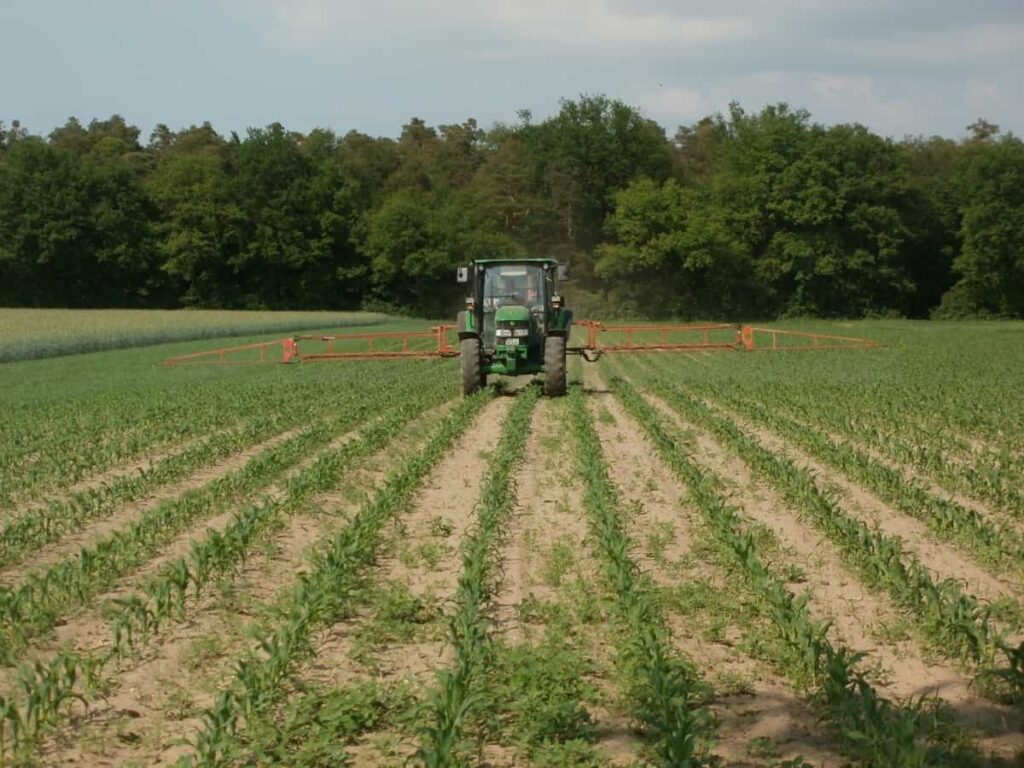So you want to get into the agricultural business? Farming can be very profitable, but it takes more than just a green thumb to succeed. It is better to have a well-thought-out business plan that covers all the bases. This blog post will explore what goes into a profitable agricultural business plan. There are many factors to consider, from identifying your target market to considering the production costs. But don’t worry; we will walk you through each step of the process so that you can hit the ground running with your new business venture.

Agricultural business plan
What is an agricultural business?
An agricultural business is an enterprise that engages in producing, processing, and marketing agricultural products. Agricultural businesses can be small, family-owned operations or large, multi-national corporations. Farmers may sell their products directly to consumers or through intermediaries such as wholesalers or retailers. There are many different types of agricultural businesses, including livestock farms, dairy farms, crop farms, and horticultural businesses.
Each type of agricultural business has its unique challenges and opportunities. Livestock farms raise and care for animals used for meat, milk, eggs, or other products. Dairy farms produce milk and other dairy products. Crop farms grow fruits, vegetables, grains, and other crops. Horticultural businesses grow plants for sale as ornamentals or use in landscaping.
Agricultural businesses must carefully plan their operations to be successful. They must consider factors such as the type of product they will produce, the market for their product, the cost of inputs (land, labor, capital), and the price they will receive. A well-executed business plan can help an agricultural business to thrive and become profitable.
In case you missed it: Carrot Farming Business Plan: How to Grow from Seed to Harvest

Why start an agricultural business?
There are many reasons to start an agricultural business. Agricultural businesses can be very profitable, provide a valuable service to the community, and offer an excellent lifestyle for the owners and employees. An agricultural business can be profitable because of a strong demand for food and other agricultural products. In addition, the world population is growing, and more people are moving into cities with less access to fresh food.
This creates a large market for agricultural businesses that can provide safe, healthy, and affordable food. Starting an agricultural business can also provide a valuable service to the community. Agricultural businesses can help meet the needs of local communities by providing fresh produce, meat, dairy, and other products. They can also create jobs and support the local economy.
Finally, owning an agricultural business can offer an excellent lifestyle for the owners and employees. Agricultural businesses are often located in beautiful rural areas, where the pace of life is slower and more relaxed. The work can be challenging and rewarding, and a sense of pride comes from producing food for others to enjoy.
What are the benefits of an agricultural business?
An agricultural business can be a very profitable venture. There are many benefits to starting and owning a farming business. Some of the benefits include:
In case you missed it: High Yield Hybrid Cotton Varieties in India – For Rabi, and Kaharif Seasons

- Agricultural businesses provide a much-needed service to society. They produce food and other necessary items that we need to survive. Without agriculture, the world would be a very different place.
- Agricultural businesses are typically very stable. They are not as prone to the economy’s ups and downs as other businesses. This stability can provide security for families and employees alike.
- Agricultural businesses offer an excellent opportunity to be your boss. You can be in control of your destiny and make all of the decisions regarding your business. This can be a very empowering feeling.
- Agricultural businesses often have a positive impact on their local communities. They provide jobs and economic stability to rural areas that might otherwise struggle financially. Additionally, they usually give back to the community through charitable donations and other forms of giving.
- Agricultural businesses offer a unique lifestyle that can be very rewarding. An agricultural business may be the perfect fit if you love working outdoors and being around animals and crops. However, this type of business is only for some people, so make sure it is something you are genuinely interested in before committing.
The basics of starting an agricultural business
If you’re thinking of starting an agricultural business, there are a few things you need to know. First, you need to understand the business you want to create. What kind of products or services will you offer? What is your target market? Who are your competitors? Once you understand the business you want to start, you must develop a business plan.
This plan will help you map out the steps, process you need for getting your business up and running, and it will also help you secure funding from investors or lenders. Next, you need to choose a location for your agricultural business. For example, if you’re starting a small farm, you’ll need to find land suitable for farming. Once you’ve found a location, you’ll need to get the necessary permits and licenses from the government.
Once you have your location and all the required licenses and permits, you can start buying equipment and hiring staff. For example, starting a small farm requires tractors, planting equipment, irrigation systems, etc. You’ll also need employees to help with the farm’s day-to-day operations.
As your agricultural business grows, you’ll need to focus on marketing and sales. You’ll need to find ways to reach your target market and convince them to buy your products or services. You may also want to consider expanding your operations by opening additional locations or offering new products.
What are some profitable agricultural businesses?
Several agricultural businesses can be pretty profitable. One option is to start a small farm and sell products directly to consumers at farmer’s markets or through a Community Supported Agriculture (CSA) program. Another option is to raise livestock for meat, eggs, or dairy products.
In case you missed it: Contract Sheep Farming in India: Companies, Agreement, Profits, How it Works and the Pros and Cons

Other possibilities include starting an organic gardening business, operating a nursery selling plants and trees, or running a landscape design business specializing in creating gardens and outdoor spaces for homes and businesses. There are also opportunities for value-added agriculture businesses such as making and selling jams, jellies, or other food products made from fruits and vegetables grown on the farm.
How to start an agricultural business?
There are a few key things to start an agricultural business. First, you need to choose the correct location. You want to pick a spot with good soil and a lot of sunlight. You also want to make sure there is enough water for your crops. Next, you need to choose what crops you want to grow. Then, it would be best to research which crops are in demand and which will fetch a good price.
You also want to consider your chosen location’s climate so you can pick crops that will do well there. Finally, you need to develop a business plan. This includes figuring out your costs, how much you need to sell your crop, and marketing your business. Once you have all this figured out, you can start planting and growing your business!
The most profitable crops to grow
When choosing the most profitable crops to grow for your agricultural business, there are several factors to consider:
- The market demand for the crop. What crops are in high demand and will fetch a good price?
- The growing conditions required for the crop. Some crops are very sensitive to climate and soil type, so choosing ones that can be successfully grown in your area is important.
- The input costs associated with growing the crop.
Make sure to factor in things like seed, fertilizer, labor, and equipment costs. Some of the most profitable agricultural crops to grow to include:
- Corn/Maize: Corn is a staple crop used in various products, from food to biofuels. It is relatively easy to grow and has high market demand.
- Soybeans: Soybeans are another widely used crop that has a variety of uses, including animal feed, biodiesel, and human food. They are relatively easy to grow and have a high market demand.
- Wheat: It is a versatile grain from bread to pasta to beer brewing. It’s relatively easy to grow and has strong market demand.
- Rice/Paddy: Rice is a dietary staple for billions of people around the world. It’s easy to grow and has high market demand.
- Cotton: Cotton is a high-dollar cash crop to consider.
In case you missed it: Cinnamon Farming Business Plan: A Profitable Production Guide for Beginners

Best states for agricultural businesses
There are a few factors to consider when choosing the best state for your agricultural business. The climate, soil type, and availability of water are important considerations. You will also want to consider the market for your products, transportation infrastructure, and the overall business environment.
The best states for agricultural businesses vary depending on the type of business. For example, California is well-suited for businesses that produce fruits and vegetables, while Nebraska is better suited for livestock production. Here is a more detailed look at some of the best states for different types of agricultural businesses:
- Fruits and Vegetables: California, Florida, Hawaii, Texas
- Livestock: Nebraska, Iowa, Kansas, South Dakota
- Grain: North Dakota, South Dakota, Minnesota, Illinois
- Dairy: Wisconsin, New York, Pennsylvania
How to write a business plan for an agricultural business
If you’re considering starting a farming business, you’ll need to create a business plan. This will help you secure funding, find the right location, and hire employees. Here’s a step-by-step guide to writing a business plan for an agricultural business:
- Define your business. What type of agricultural business do you want to start? What products or services will you offer? Who is your target market?
- Write your executive summary. This is a brief overview of your business plan. Include your mission statement, company description, and goals.
- Do your market research. First, conduct a feasibility study to see if there’s a demand for your products or services in your target market. Then, research your competition and pricing options.
- Develop your marketing strategy. How will you reach your target market? What marketing channels will you use? What are your sales goals?
- Create a financial plan. Estimate your start-up costs and projected revenue for the first few years of operation. Create a budget and cash flow statement. Find sources of financing, such as loans or investors.
- Plan for management and operations. Describe how you’ll organize and run your business on a day-to-day basis. Include information on staffing, facilities, and logistics.
Tips for making your agricultural business successful
When starting an agricultural business, you must keep a few key things in mind to succeed. Firstly you need to have a well-thought-out business plan. This plan should include your goals and objectives for the business, as well as how you intend to achieve them. In addition to a strong business plan, you must have the financial backing necessary to get your business off the ground.
This means having access to capital through savings, loans, or investors. Another important aspect of starting a successful agricultural business is understanding the market well. You need to know your target customers and what they are looking for. Additionally, you should have a solid marketing strategy to reach these customers.
In case you missed it: Terrace Gardening ideas for Home in India: For Vegetables, Fruits, Flowers, and Herbs

Finally, it is also crucial that you have a strong team in place to help you run the day-to-day operations of your business. This team should be composed of individuals with expertise in various areas such as marketing, finance, and agriculture. By working together, you can increase your chances of success exponentially.
Conclusion
Many different agricultural businesses can be profitable, but it is vital to have a clear plan before getting started. This article has provided tips on developing a profitable agricultural business plan, including researching, knowing your costs, and having a clear marketing strategy. Following these tips gives you the best chance of success in starting your own agricultural business.
- How to Raise Pigs in Your Own Backyard: A Comprehensive Guide
- Budget Friendly Sheep Shed Ideas: Cheap and Low-Cost Tips
- How Much Do Cattle Farmers Make: Revenue Streams in Cattle Farming
- Management Pests and Diseases in Your Cotton Field
- Sheep Farming Business Plan for Beginners
- Aquaponic Farming at Home: A Step-By-Step Guide
- Profitable Village Farming Business Ideas in 2024
- High-Yield Aquaculture: Fast-Growing Fish for Farming
- Effective Fish Pond Construction Techniques for Beginners
- Irrigation and Water Management in Pineapple Farming
- Blossom to Harvest: Mastering Flowering and Pollination in Papaya Farming
- Pig Fattening Essentials: From Selection to Sale for Beginners
- Raising Wagyu Cattle: A Complete Guide for Premium Beef Production
- Soil Types and Their Water Holding Capacity
- Optimizing Irrigation Schedules for Coconut Groves for Enhanced Yield
- Espresso Your Garden: Coffee Grounds for Healthier Acid-Loving Plants
- The Best Soil Mix for Snake Plants: How to Mix Your Own Snake Plant Soil
- Green Thumb Success: Expert Tips for Cultivating Greenhouse Beans All Year Round
- Bloom All Year Round: The Ultimate Guide to Indoor Hyacinth Care
- Eco-Friendly Gardening: How to Make Liquid Fertilizer from Kitchen Waste
- Ultimate Guide to Grow Anise in Pots: Explore Seed Propagation to Harvesting
- Guide to Raising Chester White Pigs: Discover Breed Facts to Growth Management
- Mastering the Elegance: The Ultimate Guide to Weeping Cherry Tree Care, Planting, and Maintenance
- Ultimate Guide to Planting Garlic in Grow Bags: Growing Strategies for Beginners
- How to Fix Spider Plant Leaf-Related Problems: Natural and Organic Remedies
- 10 Reasons Why Your Tulsi Plant is Shedding Leaves: Home Remedies and Solutions
- Optimizing Growth and Yield: The Advantages of Palm Bunch Ash Fertilizer
- Utilizing Neem Oil Extract as a Natural Pesticide for Hydrangea
- From Soil to Harvest: Various Ways in Which Farmers Can Use AI Tools
- Steps to Encourage and Induce Citrus Flowers: A Comprehensive Guide
- How to Fix Snake Plant Leaf-Related Issues: Natural and Organic Remedies
- Transform Your Garden into a Fragrant Oasis with Raat Ki Rani (Night Blooming Jasmine)
- Discover the Ideal Chicken Breeds for Philippine Farms
- How to Create a Poultry Egg Farm Business Plan for Profits
- Grow Lemon Cucumbers Like a Pro: Insider Techniques for Bountiful Yields
- Ultimate Guide to Caring for Your Pink Princess Philodendron: Tips for Thriving Variegation
